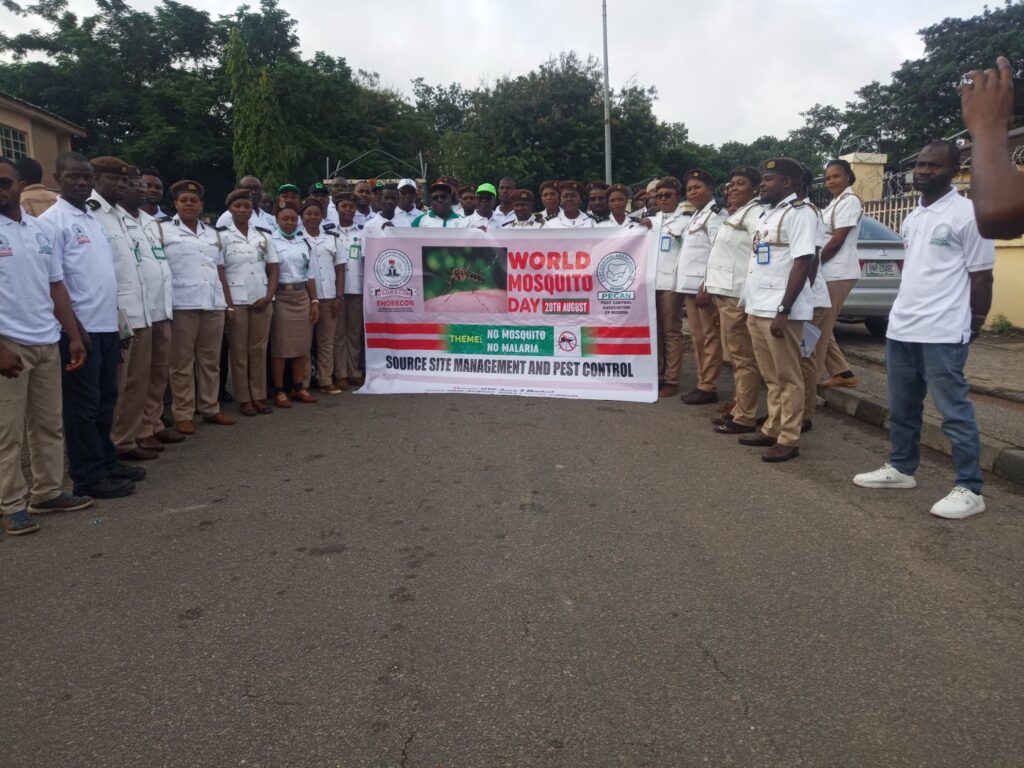Nicholas Adeniyi
In reaction to the World Health Organisation reports that Nigeria accounts for 31.9% of global mortality cases of malaria, experts have called for robust collaboration among stakeholders to enforce increased health and environmental sanitation practices in Nigeria.
Speaking at a public awareness campaign in commemoration of 2022 World Mosquito Day, Pest Control Practitioner, Terungwa Abari, warned that the spread of Malaria will continue if adequate measures are not taken by relevant authorities to stop the scourge of mosquitoes.
In his remark, “For Nigeria to achieve a Mosquito free society, it must be engaged through a multi-pronged approach that incorporates cultural and technical pest control practices, including increased public awareness on the need for citizens to inculcate good environmental sanitation practices.
Pest control should be proactive and not reactive, you are supposed to clear the environment to ensure that the pests don’t breed and not that you wait for them to breed before killing them”
Recall that President Muhammadu Buhari on 16th August inaugurated the Nigeria End Malaria Council (NEMC), which included a 16-member council headed by the founder and president of Dangote Group, Aliko Dangote, with the set goal to eliminate Malaria in Nigeria by 2030.
Abari, who is the Chairman, FCT chapter of Pest Control Association of Nigeria, however, argued that to achieve that milestone within a short period of 8 years, provisional practitioners such as PECAN should be included in the committee to provide provisional advice and ensure adequate expertise are brought to bear.
Meanwhile, the Minister of Environment, Mohammed Abdulahi, has tied the significance of World Mosquito Day to the One-Health concept, he noted that malaria is a public health challenge and those responsible for controlling the reduction of the Mosquitoes population must ensure it is done with the right methodology and not a crude way.
The minister who was represented by Registrar General of Environmental Health Registration Council of Nigeria, Yakubu Baba, further revealed that “the elimination of malaria according to the president will reduce the economic burden in the country by over 2 trillion naira and it is achievable.
We know that with the economic hardship Nigerians are facing, If my malaria is reduced we know it will improve the economy of the nation”.
He, therefore, called on Nigerians to engage appropriate channels while carrying out environmental sanitation and should be done such that human health and environmental protection are prioritized.

